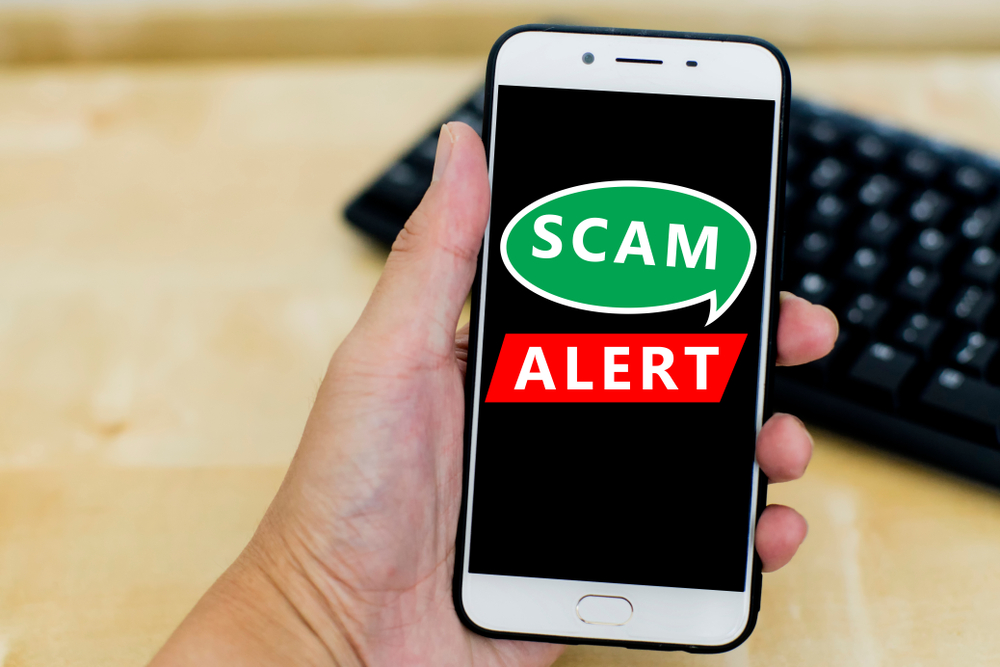
Scams During The COVID-19 Pandemic
While the UK is on lockdown in an attempt to control the spread of the COVID-19, some people are trying to take advantage by scamming vulnerable members of the public. Criminals are seizing this opportunity to scam susceptible people and aim to profit from doing so. Be aware of these scams during the coronavirus pandemic.
The scams started before the lockdown. There were hundreds of complaints made to trading standards by people who had tried to buy face masks, hand sanitisers and test kits and had been duped; their money was taken but they have never received the items.
The phishing scams began around that time too. In January as the news broke about this virus, the likes of which we’ve not seen before, people were receiving emails purporting to be from the World Health Organisation (WHO) or Centers for Disease Control and Prevention (CDC).
These scam emails contained ‘valuable information’ about the Covid threat. All you needed to do was click on a link that would take you to this ‘information’. By the time you had clicked on any links, the damage was done. Attached to the links was a virus that was now residing in your device.
These viruses can obtain any sensitive and personal information that is stored in your computer or device. Information like that is of great use to any criminal, either for their own personal use or to sell on the dark web. Bank accounts, credit cards and the like are targeted by the criminals and sometimes emptied.
By Friday 20th March, the City of London police force had seen a rise of over 400% due to complaints about Covid related scams. Across the UK, the theme seems similar.
Kids Meals
With all the children now being at home, many parents have received an official looking email regarding school dinners. It informs them that they are entitled to financial support and asks that parents provide their banking details and they will then receive the money.
Knocking On Doors With Offers Of Help
While most communities are coming together and helping those that need support, there are the very few who see a different opportunity to target people. If a complete stranger knocks on your door and offers to shop for you and asks you to hand over your cash or card, don’t do it. There’s a chance you’ll not see the stranger, your money or the shopping again. Some rogues are offering to jet-wash driveways to remove ‘bacteria’. Do not be taken in by these scams.
HMRC tax relief/ goodwill payment
HMRC are aware of a handful of scams circulating which are related to Covid. These include emails informing you that you can claim a tax refund due to the coronavirus outbreak and text messages saying they have issued a goodwill payment for the same reason. Don’t click these links and, if you do, please don’t fill out the forms asking for your details- personal and financial!
Lockdown fines
Similar to the HMRC scams, people have reported receiving a text from the government telling them that they are being fined for leaving the house during the Covid pandemic. Do not click the link and do not call the number.
Phone calls, text messages or visits from ‘reputable’ companies
Ofcom has received complaints about larger companies calling people, in person or by telephone. This includes banks, broadband providers, utility providers and the like. If someone calls at your door, verify their ID, even if you need to call the company to do so. A genuine representative won’t mind waiting while you do so.
Any large company will address you by your name in an email and not use Dear Sir/Madam. Check grammar and spelling for any inconsistencies. If an email looks suspicious, don’t click on anything or reply. Instead, use your browser to contact the company. Do not give any information, even as simple as your name.
Fake news
While fake news may not cause us financial distress or cause us untold worries about providing a criminal with our details, it can still cause problems. Social media is awash with fake news, now more than ever.
Question everything you read. Do you believe that you’ll hear about the cure for Covid-19 on Facebook first? Someone’s friend’s auntie’s cousin isn’t likely the font of all knowledge in how the virus will take a hold in the near future.
Fake news can cause widespread panic and undue anxiety, particularly in unprecedented times such as these while we’re at home with these stories bombarding us everywhere we look. This can easily lead to you being scammed down the line, especially during the Covid pandemic when you’re more isolated.
There are sites you can visit to check the authenticity of what you are reading.
For anything government-related, visit https://www.gov.uk/government/publications/phishing-and-bogus-emails-hm-revenue-and-customs-examples/phishing-emails-and-bogus-contact-hm-revenue-and-customs-examples
To report fraud, visit Action Fraud here https://www.actionfraud.police.uk
For fact checking, visit any of these sites:
Snopes- https://www.snopes.com/
Fullfact- https://fullfact.org/
Reassura-https://reassura.com/
Newsguard- https://www.newsguardtech.com/
Channel 4 News also has its own fact-checking page- https://www.channel4.com/news/factcheck
And finally, keep each of your devices updated with the latest software updates- these often include their latest security patches.
Visit https://www.notty.co.uk/ to have a look at what a Notty account can do for you. With free McAfee security, dark web searches and social media scoring, Notty is a great tool for you to stay safe online.
